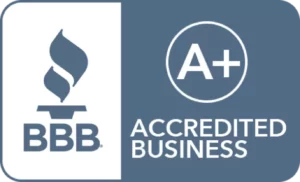Hedge fund investing with a Self-Directed IRA is quite popular as it has the ability to bring great returns. However, hedge funds are not without risk. Aside from the general risk of the investment, you need to be mindful of the Self-Directed IRA rules. Specifically, you need to pay attention to the prohibited transaction rules. If you break these rules, your IRA will become disqualified, and you will no longer have the tax-advantaged account to invest with. In the following, we’ll explain these rules, how the hedge fund works and some tips for investors seeking to use IRA funds to invest in one.
The Rules of the Self-Directed IRA
A Self-Directed IRA allows one to invest in alternative assets, such as hedge funds. So long as you have a custodian, such as IRA Financial, you can pretty much invest in anything you want, so long as it’s not a collectible, life insurance or involves a disqualified person. Alternative investing is a great way to properly diversify your retirement holdings. By investing in traditional assets, such as mutual funds and stocks, in additional to alternatives, like real estate, you can hedge against potential dips in one asset class.
Obviously, with any retirement plan, the idea is to accumulate savings for your post-working career. Penalties and taxes are in place so that you do not withdraw funds until that time. Further, rules are in place so that the IRA is the only thing that benefits from an investment. You, as the IRA holder, your spouse, you lineal ascendants and descendants and entities controlled by such persons cannot personally benefit from an IRA investment. The tax treatment afforded by the IRA is benefit enough says the IRS. Therefore, you need to be very careful when using your Self-Directed IRA to invest in a hedge fund. Always adhere to the rules set forth by the IRS when investing.
What is a Hedge Fund?
Essentially, a hedge fund is a privately owned company that pools investors’ money and reinvest them in complicated financial instruments that try to outperform the market. Usually, they are more aggressive with investment choices than a standard mutual fund. Therefore, they can be quite risky. But the upside is huge returns on your investment.
Hedge funds are set up as limited partnerships or LLCs. In the case of a limited partnership, a general partner (GP) is created to manage all the tasks associated with the fund. The GP owns a small percentage of the partnership. Investors are sought, who become limited partners (LP). The GP will generally take a two percent management fee of all the assets in the hedge fund. Further, it would take 20% of the profits generated by the fund after the LP investors have received their money they invested back and, in some cases, a preferred return on the money invested.
Hedge funds can be invested in all sorts of asset classes, such as stocks, real estate, currencies and other alternative assets. On the other hand, mutual funds generally invest in only stocks and bonds. To invest in a hedge fund, you must be an accredited investor. Therefore, not any John Smith can invest.
Can You Invest in a Hedge Fund with Your IRA?
Assuming all IRS rules are adhered to, you can certainly invest in a hedge fund with your IRA. However, it’s a slippery slope to manage. First off, you need to ensure you do not break the prohibited transaction rules. Your IRA can be the only thing that benefits from the hedge fund investment.
Since the GP is the one making all the hedge fund decisions and earns income for doing so, your Self-Directed IRA can not invest in it. No management fees should be taken by the IRA. However, it may invest as an LP in certain situations. Having a small stake in a hedge fund with your IRA should be allowable under the prohibited transaction rules. For example, if you own a small percentage in a large fund, such as Apollo, you should be okay. If you IRA will be the primary investor in a smaller fund, it is riskier.
You, as the IRA investor, have the onus to prove you are not personally benefiting from an IRA investment. If the IRS questions your investment, it is up to you to defend it. If cannot prove your investment is only benefiting the IRA, it may be disqualified and you will lose the tax advantages afforded by it.
UBTI Implications
One last thing you need to be aware of is the unrelated business taxable income tax, or UBTI. The income allocated from the hedge fund investment needs to be examined to determine if it is subject to this tax. The Internal Revenue Code exempts most Self-Directed IRA investments from federal taxes. However, there are exceptions that may be taxed.
Therefore, if the hedge fund activities either A) rise to the level of a trade or business, or B) if margin or debt is used in the trading activities, you may be subject to the UBTI tax. Most hedge funds are set up as pass-through entities, therefore, it’s imperative you understand the UBTI rules. The tax can go as high as 37%. This might make you think twice about the fund you are investing in. It’s important you speak with an expert who knows all the intricacies of the IRS rules.
Conclusion
If you are an accredited investor looking to use a Self-Directed IRA to invest in hedge funds, it is possible so long as you abide by the IRS rules. Ensure you and other disqualified persons are not benefiting from the investment. It’s also important to be mindful of the UBTI rules to see if the investment makes sense. Working with the right custodian, such as IRA Financial, is the first thing you should do. If you have any questions about hedge fund investing, please give us a call @ 800.472.1043.











